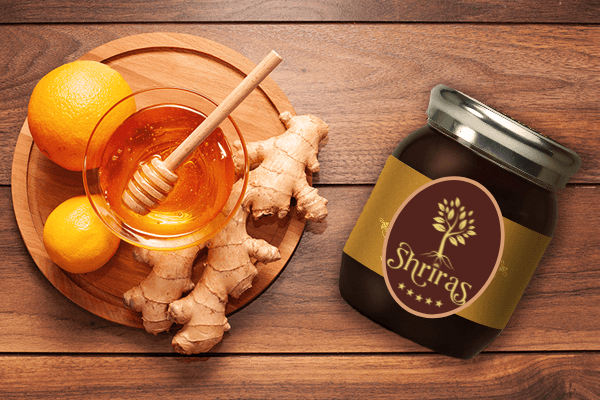
BENEFITS of Honey !
Honey has been used by countless cultures all around the world over the past 2,500 years. While the numerous health benefits of honey have made it an important element of traditional medicines such as Ayurvedic treatments, scientists are also researching its benefits concerning modern medicine, particularly in the healing of wounds.
Honey is a great source of antioxidants, which help in fighting free radicals. It also has antibacterial and anti-fungal properties and is known to be good for coughs and cold.

- Beautiful & Healthy Skin
- Antioxidants & Probiotic
- Blood Sugar Regulations
- Reduce Ulcers / Soothes Coughs
- Heal Bums / Treat Wounds
- Boost Memory & Protects Teeth
- Anti-Bacterial & Provides Nutrients
Healthy Sweetener
It can be used as a substitute for sugar in many foods and drinks. It contains about 69% glucose and fructose, enabling it to be used as a sweetener which is far better for your overall health than normal white sugar.
Honey also contains a variety of vitamins and minerals. The type of vitamins and minerals and their quantity depends on the type of flowers used for apiculture. Commonly, honey contains vitamin C, calcium, and iron. The vitamin and mineral content in regular sugar, on the other hand, is completely insignificant.
Weight Loss
Honey is known to be effective for reducing weight as it has a low glycemic index, which helps in controlling weight gain and fat accumulation. It also fights obesity by lowering blood glucose levels and improving lipid metabolism, thereby also preventing the risk of metabolic syndrome (metabolic syndrome causes obesity).
Provides Cough Relief
In 2012 a research was conducted on 300 children (1 to 5 years) to find out the effect of honey on nocturnal cough and sleep quality. The results published in the Pediatrics Journal showed that it could be a preferable treatment for a cough and sleep difficulty associated with childhood upper respiratory tract infections (URIs).
Another research suggests that giving 1.5 tsp of honey to kids before bedtime can be an effective cough remedy.
Boosts Energy
According to the USDA, honey contains about 64 calories per tablespoon. Therefore, it is used by many people as a source of energy. On the other hand, one tablespoon of sugar will give you about 15 calories. Furthermore, the carbohydrates in it can be easily converted into glucose, since it is very simple for the body to digest this pure and natural substance. For the same reason, it is also known to improve athletic performance.
Improving Memory
Honey contains polyphenols that can significantly improve the memory-related functions of the brain. It counters deficits in recall functions and induces memory formation at the molecular level. It is this modulation of neural circuitry that helps in improving memory. Research on Tualang honey, multi-floral honey found in Malaysia, found that its intake improves the brain morphology to improve various learning and memory functions.
Antiseptic Property
When applied topically on wounds, honey has anti-bacterial and anti-fungal properties. It is often used as a natural antiseptic in traditional medicines. In-vitro tests on different medical-grade kinds of honey showed potent bactericidal activity even in the presence of antibiotic-resistant bacteria that infections in humans. However, the antimicrobial activity depends on the source of nectar.
Antioxidant Properties
It contains nutraceuticals, which are very effective for the removal of free radicals from the body. As a result, our body’s immunity is improved against many chronic health conditions. A study on the antioxidant properties of honey, published in the Journal of Agricultural and Food Chemistry, attributed these qualities to the presence of a wide range of compounds, which include phenolics, peptides, Maillard reaction products, organic acids, enzymes, and other minor components.
Skin and Hair Care
Milk and honey are often served together since both of these ingredients help in creating smooth, beautiful skin. Consuming this combination every morning is a common practice in many countries for this very reason. A study published in the European Journal of Medical Research investigated and confirmed the use of honey for dandruff and dermatitis. It said that crude honey could markedly improve seborrheic dermatitis, its associated hair loss, and prevent relapse when applied weekly.
It is also used in various cosmetics, including face washes, moisturizers, shampoos, and hair conditioners, as per research published in the Journal of Ayurveda.
Speeds Wound Healing
Significant research is being carried out to study its benefits in the treatment of wounds. These have been listed below:
- It possesses antimicrobial properties.
- It helps in promoting autolytic debridement.
- It deodorizes malodorous wounds.
- It speeds up the healing process by stimulating wound tissues.
- It helps in initiating the healing process in dormant wounds.
- It also helps in promoting moist wound healing.
These healing powers are not overstated. The Waikato Honey Research Unit provides details about the worldwide research that is being carried out on the benefits of honey in medicine. Such research will provide scientific evidence for the beliefs held by honey lovers all over the world and will help in propagating the benefits to more people.
Now that you know the benefits, how do you eat it? You can eat it raw, add it to water or different beverages, and you can also add it to several recipes.
| Honey Nutrition Facts | ||
Composition Nutrition Values | ||
| Energy | 304 KCAL | |
| Nutrient | Average amount in 100g of honey | Range |
| Water | 17.1 g | (12.2-22.9 g) |
| Carohydrates (total) | 82.4 | |
| Fructose | 38.5 g | (25.2-44.4 g) |
| Glucose | 31 | (24.6-36.9 g) |
| Maltose | 7.20 g | (1.70-11.8 g) |
| Sucrose | 1.50 g | (0.50-2.90 g) |
| Proteins, amino acids, vitamins, and minerals | 0.50 g | |
| Vitamin | Amount in 100g of honey | U.S. RDA |
| Thiamin | < 0.006 mg | 1.5 mg |
| Riboflavin | < 0.06 mg | 1.7 mg |
| Niacin | < 0.36 mg | 20.0 mg |
| Pantothenic Acid | < 0.11 mg | 10.0 mg |
| Pyridoxine (B6) | 0.32 mg | 2.0 mg |
| Ascorbicaciad (C) | 22-2.4 mg | 60.0 mg |
| Minerals | ||
| Calcium | 4.4-9.20 mg | 4.4-9.20 mg |
| Copper | 0.003-0.10 mg | 2.0 mg |
| Iron | 0.006-1.5 mg | 18.0 mg |
| Magnesium | 1.2-3.50 mg | 400.0 mg |
| Manganese | 0.02-0.4 mg | |
| Phosphorus | 1.9-6.30 mg | 1000.0 mg |
| Sodium | 0.07-7.60 mg | |
| Zinc | 0.03-0.4 mg | 15.0 mg |
| Equilibrium between ambient RH and water content of honey | ||
